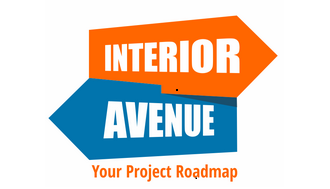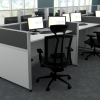Guide To Office Furniture Taxes
Guide To Office Furniture Taxes
Whether you are just launching a business or a long-time business owner or manager, you’ll need to make various investments and accumulate certain expenses and investments as you optimize your company’s business flow. As a business owner or manager, when you make purchases relating to the company and its operation, it is important to know what items and services you can consider as an investment, making them tax-deductible.
Many tax-deductible expenses, such as technology and internet costs, work-related travel expenses and car use, bank fees and office supplies, are fairly straightforward. Still, some deductible expenses are easy to overlook, causing you to miss out on tax deductions. One commonly overlooked expense is office furniture.
What Office Furniture Can Be Expensed?
Simply put, an expense is a cost of operations that a company incurs in the process of trying to generate revenue. The Internal Revenue Service considers many expenses tax-deductible, meaning these particular purchases can reduce the amount you’ll owe in taxes. Office furniture can be expensed, meaning it can be listed as a tax-deductible expense on your taxes. The IRS considers basic pieces of furniture to be necessary business expenses. Office furniture acts as an asset to the company, allowing you and other employees to work comfortably, efficiently and effectively while making guests feel welcome and encouraged to use your company’s services.
The IRS says businesses can write off up to $1,000,000 in office furniture, meaning you can take up to $1,000,000 off your taxable income from your office furniture purchases.
You can claim many types of office furniture on your taxes. Beyond your computers and other expensive office equipment, office furniture that qualifies for a tax deduction includes various pieces. Tax-deductible furniture for an individual office includes desks, chairs, computers and accessories, phones, shelving and decor. Thinking about shared office space, this includes cubicles, couches, conference tables, cabinets, lounge chairs, shelving reception desks, printers, televisions, artwork and appliances, such as refrigerators and microwaves.
Other Items That Can Be Expensed
Besides office furniture, some important purchases that can be expensed include:
Industry-Based Expenses

While many pieces of furniture can generally qualify as tax-deductible, it is important to remember that furniture necessary for your company depends on the industry, products and services your company works in and provides. This means that a tax-deductible item for one business may not be for your company.
Before making a purchase you assume you can write off in your business taxes, ask yourself if the item is necessary for you or your company to succeed in running or growing your business and if the item is one that most companies in your industry find necessary to maintain operation. If so, then the piece of furniture falls into the tax-deductible category and you can include it in your deductions.
Office Supplies
Other purchases you can expense for your business are office supplies. This includes office necessities such as stationery, pens, ink and toner, paper clips, staples and so on. Note that the major distinction between office supplies and office furniture is that supplies are short-term items, meaning that you will need to restock and replace these items more frequently than you would furniture.
Office Furniture Tax Deductions
Under the IRS tax code Section 179, businesses can deduct from their taxes the full purchase price of office furniture with a limit capped at $1,000,000. This means the amount will be written off from your taxable income. For example, this means that if your company is in the 20% tax bracket and you purchase a total of $50,000 worth of office furniture in one tax year, deducting 100% of the cost under Section 179 yields a total tax savings of $10,000. This brings the total cost of your office furniture to $40,000, even though you’ll pay $50,000 at first.
Because office furniture is a necessary expense and is an investment for the company, this is what allows you to write your purchases of office furniture off as 100% tax-deductible. Section 179 is an important tax code beneficial to both small and large companies, as it acts as an incentive for companies to buy equipment and invest in themselves and their futures.
Personal Expenses Vs. Business Expenses

Before you begin writing off office furniture as a business expense, you must understand what classifies as an expense and the rules surrounding it. One major consideration to make before putting a furniture item of any sort on your tax-deductible is that you must use the furniture you deduct strictly in the office space. For the furniture to be tax-deductible, it must be necessary for your business’s operation. Another important thing to make sure is that the purchase is not a personal expense, which means that you must solely use it for business purposes.
For example, if you write off a piece of decor as a business expense, you do not want to remove it from the office and use it as a decoration somewhere else, such as in your home. Similarly, if you purchase a computer and mark it as a business expense, you cannot use it as a personal computer or take the new one for yourself and bring your old computer to the office to use. You must use any furniture or other item that you deduct as a business expense in the office to run or grow your company.
Although writing off a purchase as partially business and partially personal is possible, it is not as simple in terms of furniture. For example, if you use 70% of an item for business purposes and the remaining 30% for personal use, then you can deduct 70% of the purchase as a business expense.
However, while this reigns true for regular business expenses, this can be a little more tricky with things like furniture. Most office furniture is not as clear-cut as other business expenses in these terms because it is not always transportable or functional in different locations. That being said, it is easiest in the case of office furniture to keep it fully as a business expense and leave it for use in the office setting only to make it 100% deductible on your tax return.
Tax Audits
If you deduct furniture that turns out to be a personal expense and is not necessary for your business, you risk being audited by the Internal Revenue Service (IRS). An IRS audit is when the IRS reviews your business accounts to make sure that you have properly reported your information according to current tax laws. There are two ways that you can become chosen to be audited. The first way is through random selection and computer screening. You will also be audited if there are discrepancies or mistakes within your tax reporting.
Concerning the latter, you need to ensure that you properly report your business expenses and earnings. This means that you should report all of your income and deduct only business expenses necessary for running your company. If the IRS finds that you have deducted personal expenses from your business taxes, this results in you not paying enough in your taxes. You, then, will have to pay the difference between the correct tax amount owed and your underpayment, plus interest and a penalty.
Office Furniture Depreciation

Like with any purchase, business-related or not, the purchases you make all have a specific purpose. When the item can no longer provide you with the service you need it to, you must repurchase or upgrade. As soon as you have to buy a replacement for the item, the initial one you bought does not have as much or any value compared to its purchase price. Because the ability and efficiency of an item lessen over time, the value diminishes or depreciates with it. It is important to keep this depreciating value in mind and consider factoring this in to your tax deductions.
Understanding Depreciation Value
Another important consideration when purchasing office furniture and writing it off as tax-deductible is its depreciation value. Depreciation refers to the cost of an asset over its life expectancy, or the amount of time an asset is useful. Calculating for the depreciation allows companies to earn revenue through the use of the expense while deducting a portion of its purchase price from their taxes each year, writing off the asset’s value over time. Depreciation is important to consider because it can generate significant tax savings for your company. Rather than being expensed, which gives you a one-time tax deduction, office furniture can be capitalized. This means the value is claimed as an asset on your taxes, and you’ll generate tax savings every year according to the furniture’s current depreciated value.
Every asset that depreciates over time falls into a specific property classification and has a specific lifetime period that you can write the asset off for, as defined by the General Depreciation System (GDS). According to classifications of the GDS, office furniture and fixtures are a seven-year property. This means that you can write off a piece of office furniture for the income tax returns for the seven consecutive years following its purchase because that is how long the furniture should last you and should be in good, working position.
However, because these items will lose value over time, you must depreciate office furniture on your taxes if you choose to capitalize them. To calculate the depreciation of your office furniture, you have to divide the retail cost of the item by its life expectancy. Since office furniture has a seven-year life expectancy, this means that if you spend $50,000 on office furniture, the depreciation is a little over $7,000 per year for seven years. Simply put, you can write off $7,000 per year on your taxes for seven years total.
Between the options you have under IRS tax code Section 179 to write off 100% of your office furniture purchases or to account for the depreciation value of your new office furniture over seven years, there are many opportunities for you to invest in your business and get a tax break. Your new furniture can help you increase revenue with updated equipment and by creating a comfortable workspace.
Shop Interior Avenue
If you are a new business owner looking for all new furniture for your company or if you run an established business and are looking for some office upgrades, Interior Avenue is the place for you. At Interior Avenue, we provide complete furniture services and will help guide you through each step of the office furnishing process. Starting with the design process, we provide free design services to each one of our customers who purchase cubicles through us to help you decide on the best optimal layout for your office space. We also help make delivery easy with secure shipping to anywhere in the United States. Finally, we offer a White Glove delivery service, where our experienced furniture installation technicians will set up your new office furniture purchases.
At Interior Avenue, we offer a variety of furniture and styles, with everything being high-quality, affordable and modern. Some pieces of office furniture we carry are sit-stand desks that boost productivity and motivation throughout the day, along with sturdy and eye-catching conference tables that suit any office aesthetic. For your lobby, we offer reception and lounge furniture that will make anyone who steps into your office space feel invited and relaxed. We’re also home to the Sunline sliding cubicle system, perfect for helping your office find the optimal cubicle arrangement while giving your team the privacy and flexibility they need to work most effectively.
Contact Us Today for Office furniture in Las Vegas, NV






Leave a reply